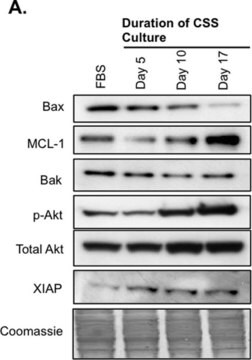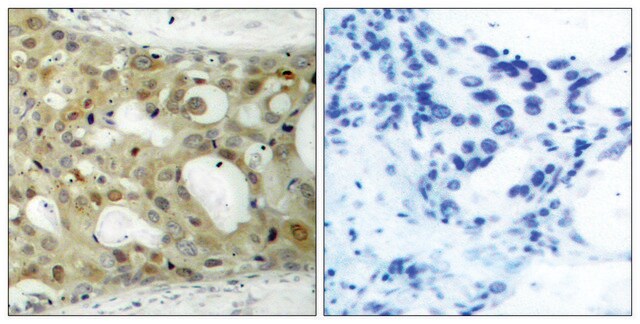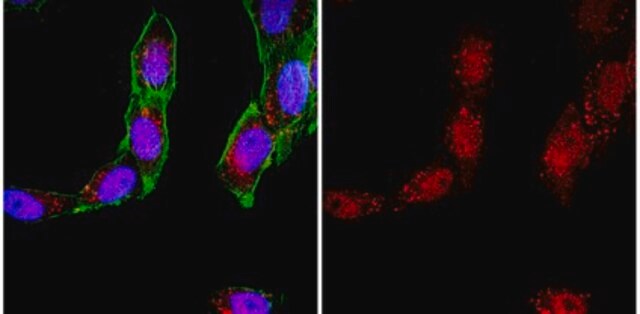ABC11
Anti-Bax (NT) Antibody
from rabbit
Synonyme(s) :
BCL2-associated X protein, Bcl-2-like protein 4, apoptosis regulator BAX
About This Item
Produits recommandés
Source biologique
rabbit
Niveau de qualité
Forme d'anticorps
purified antibody
Type de produit anticorps
primary antibodies
Clone
polyclonal
Espèces réactives
human
Réactivité de l'espèce (prédite par homologie)
bovine (based on 100% sequence homology), feline (based on 100% sequence homology), canine (based on 100% sequence homology), chimpanzee (based on 100% sequence homology), rhesus monkey (based on 100% sequence homology)
Technique(s)
immunocytochemistry: suitable
immunohistochemistry: suitable
immunoprecipitation (IP): suitable
western blot: suitable
Numéro d'accès NCBI
Numéro d'accès UniProt
Conditions d'expédition
wet ice
Modification post-traductionnelle de la cible
unmodified
Informations sur le gène
human ... BAX(581)
Description générale
Spécificité
Immunogène
Application
Immunohistochemistry Analysis: 1:300 dilution from a previous lot detected BAX in colorectal and ductal carcinoma tissue.
Immunocytochemistry Analysis: 1:500 dilution from a previous lot detected BAX in MCF7 cells.
Qualité
Western Blot Analysis: 0.125 µg/ml of this antibody detected BAX on 10 µg of HL60 cell lysate.
Description de la cible
Liaison
Forme physique
Autres remarques
Vous ne trouvez pas le bon produit ?
Essayez notre Outil de sélection de produits.
Code de la classe de stockage
12 - Non Combustible Liquids
Classe de danger pour l'eau (WGK)
WGK 1
Point d'éclair (°F)
Not applicable
Point d'éclair (°C)
Not applicable
Certificats d'analyse (COA)
Recherchez un Certificats d'analyse (COA) en saisissant le numéro de lot du produit. Les numéros de lot figurent sur l'étiquette du produit après les mots "Lot" ou "Batch".
Déjà en possession de ce produit ?
Retrouvez la documentation relative aux produits que vous avez récemment achetés dans la Bibliothèque de documents.
Notre équipe de scientifiques dispose d'une expérience dans tous les secteurs de la recherche, notamment en sciences de la vie, science des matériaux, synthèse chimique, chromatographie, analyse et dans de nombreux autres domaines..
Contacter notre Service technique








